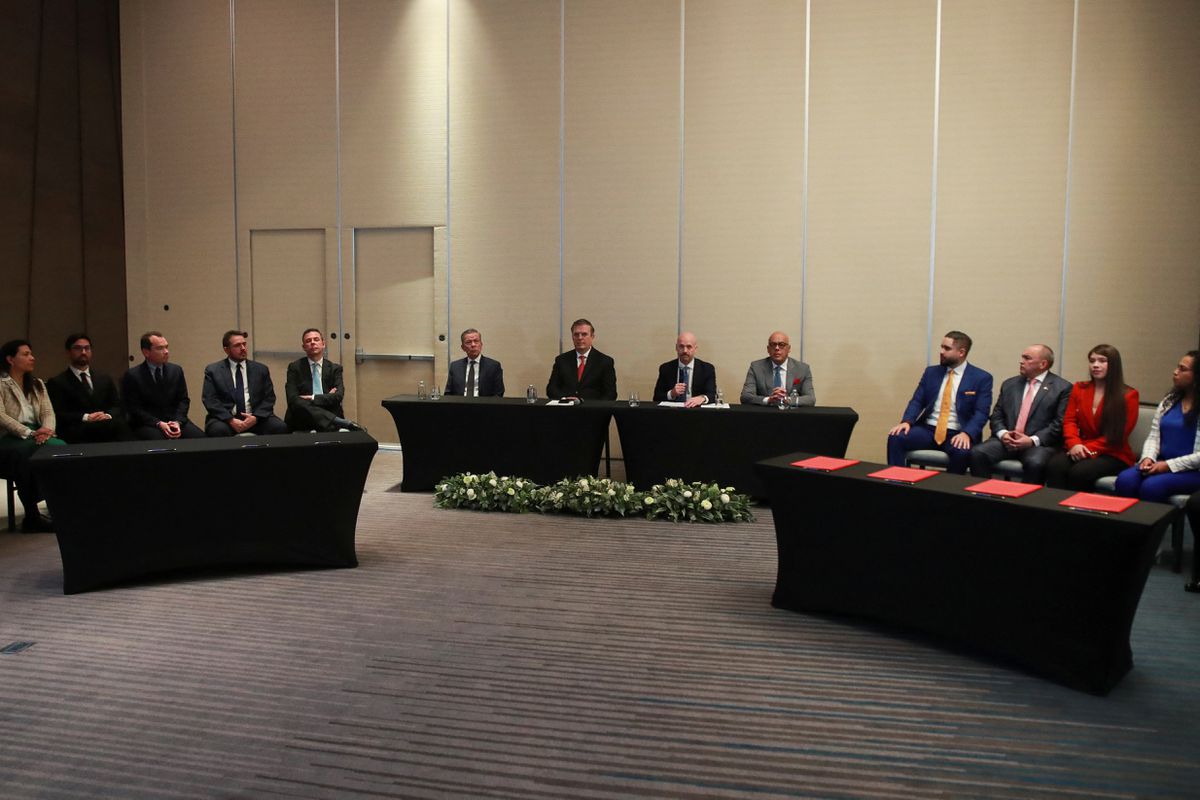WASHINGTON/HOUSTON, (Reuters) – Chevron Corp CVX.Non today received an expanded U.S. license allowing the second-largest U.S. oil company to resume production in Venezuela and to import the South American country’s crude into the United States.
The decision allows Chevron to revive existing oil projects in the U.S.-sanctioned country and bring new oil supplies to refiners in the United States. However, it restricts cash payments to Venezuela, which could reduce the amount of oil available to Chevron.
License terms are designed to prevent Venezuelan state-run oil firm PDVSA from receiving proceeds from Chevron’s Venezuelan petroleum sales, U.S. officials said. The license lasts for six months and will be automatically renewed monthly thereafter, according to the U.S. Treasury.
A Chevron spokesperson said the company was reviewing the license terms and declined immediate comment.
The U.S. issued the license on the same day that Venezuela and opposition leaders began a political dialogue in Mexico City by agreeing to ask the United Nations to oversee a fund to help provide food, health care and infrastructure to Venezuelans.
Norwegian mediator Dag Nylander hailed the agreement as a “historic milestone” though the country’s crisis could only be solved by Venezuelans themselves.
Venezuelan government representatives had arrived in Mexico City on Friday to sign an agreement with their political opponents, after talks between the two sides have been on ice for more than a year. The government’s delegation was led by congressional leader Jorge Rodriguez of Venezuela’s ruling United Socialist Party (PSUV), and the opposition group was headed by politician Gerardo Blyde.
The “social protection” fund could help prevent Venezuelans from fleeing their country by improving access to food, medicine and medical care, and by financing infrastructure projects to repair the country’s electricity grid.
The fund is part of a broad agenda that covers U.S. sanctions on Venezuela, conditions for the 2024 presidential elections and the status of hundreds of political prisoners.
However, these issues will not be discussed in this round of talks.
More than 7.1 million Venezuelans have left their country according to U.N. estimates this year, many migrating to other Latin American countries or the United States, as the country battles high inflation, food and medicine shortages.
More than half of Venezuelan migrants do not have access to three meals a day, U.N. estimates showed.
In Venezuela itself, more than half of the population experienced moderate or severe food insecurity last year, according to a survey by local universities.
Terms bar Chevron from helping the OPEC member develop new oilfields but provides a way for the company to recoup some of the billions of dollars owed by PDVSA through the oil sales. The United States said it reserved the right to rescind or revoke the license at any time.
“This action reflects longstanding U.S. policy to provide targeted sanctions relief based on concrete steps that alleviate the suffering of the Venezuelan people and support the restoration of democracy,” the U.S. Treasury Department statement said in a statement.
The authorization could provide limited new supplies of crude to a market now struggling to replace Russian barrels shunned by Western buyers over its invasion of Ukraine. Chevron and other U.S. oil refiners could benefit from supplies of Venezuela’s heavy crude flowing to their U.S. Gulf Coast processing plants.
Analysts cautioned Venezuelan President Nicolas Maduro is likely to bristle at the restrictions included in the license, including the lack of cash payments that his administration sought. Proceeds due Venezuela from Chevron’s oil sales would go into a humanitarian fund rather than to PDVSA.
Terms will “require significant reporting by Chevron on financial operations of their joint ventures to ensure transparency,” a U.S. official said, adding other sanctions on Venezuela and its officials remain in place.
“There is not a big incentive in the short term” for Venezuela, said Francisco Monaldi, an expert on Latin American energy policy at Rice University’s Baker Institute for Public Policy. Terms could be relaxed over time depending on how the talks in Mexico City proceed.
“We’ll see how Maduro’s government reacts to it and how many cargoes will be assigned to Chevron after,” Monaldi said.





